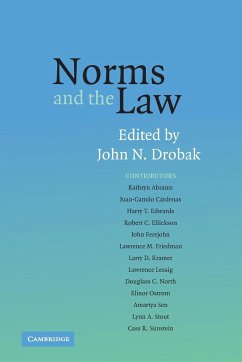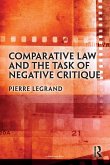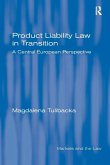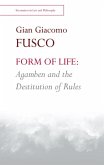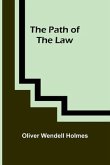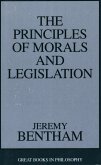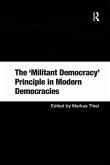- Broschiertes Buch
- Merkliste
- Auf die Merkliste
- Bewerten Bewerten
- Teilen
- Produkt teilen
- Produkterinnerung
- Produkterinnerung
This book examines the relationship between law and norms.
Andere Kunden interessierten sich auch für
![The Common Law Inside the Female Body The Common Law Inside the Female Body]() Anita BernsteinThe Common Law Inside the Female Body40,99 €
Anita BernsteinThe Common Law Inside the Female Body40,99 €![Comparative Law and the Task of Negative Critique Comparative Law and the Task of Negative Critique]() Pierre LegrandComparative Law and the Task of Negative Critique55,99 €
Pierre LegrandComparative Law and the Task of Negative Critique55,99 €![Product Liability Law in Transition Product Liability Law in Transition]() Magdalena TulibackaProduct Liability Law in Transition67,99 €
Magdalena TulibackaProduct Liability Law in Transition67,99 €![Form of Life: Agamben and the Destitution of Rules Form of Life: Agamben and the Destitution of Rules]() Gian Giacomo FuscoForm of Life: Agamben and the Destitution of Rules27,99 €
Gian Giacomo FuscoForm of Life: Agamben and the Destitution of Rules27,99 €![The Path of the Law The Path of the Law]() Oliver HolmesThe Path of the Law16,99 €
Oliver HolmesThe Path of the Law16,99 €![The Principles of Morals and Legislation The Principles of Morals and Legislation]() Jeremy BenthamThe Principles of Morals and Legislation25,99 €
Jeremy BenthamThe Principles of Morals and Legislation25,99 €![The 'Militant Democracy' Principle in Modern Democracies The 'Militant Democracy' Principle in Modern Democracies]() The 'Militant Democracy' Principle in Modern Democracies67,99 €
The 'Militant Democracy' Principle in Modern Democracies67,99 €-
-
-
This book examines the relationship between law and norms.
Hinweis: Dieser Artikel kann nur an eine deutsche Lieferadresse ausgeliefert werden.
Hinweis: Dieser Artikel kann nur an eine deutsche Lieferadresse ausgeliefert werden.
Produktdetails
- Produktdetails
- Verlag: Cambridge University Press
- Seitenzahl: 308
- Erscheinungstermin: 24. Juli 2006
- Englisch
- Abmessung: 229mm x 152mm x 17mm
- Gewicht: 452g
- ISBN-13: 9780521680790
- ISBN-10: 0521680794
- Artikelnr.: 22717299
- Herstellerkennzeichnung
- Libri GmbH
- Europaallee 1
- 36244 Bad Hersfeld
- gpsr@libri.de
- Verlag: Cambridge University Press
- Seitenzahl: 308
- Erscheinungstermin: 24. Juli 2006
- Englisch
- Abmessung: 229mm x 152mm x 17mm
- Gewicht: 452g
- ISBN-13: 9780521680790
- ISBN-10: 0521680794
- Artikelnr.: 22717299
- Herstellerkennzeichnung
- Libri GmbH
- Europaallee 1
- 36244 Bad Hersfeld
- gpsr@libri.de
John N. Drobak earned Bachelor of Science degrees in electrical engineering and management science from the Massachusetts Institute of Technology. After earning his law degree from Stanford University in 1973, he clerked for the California Court of Appeals and then practiced law for five years in New Haven, Connecticut. He joined the law faculty at Washington University in 1979, where he served as Associate Dean from 1986 to 1990, and now holds appointments as the George Alexander Madill Professor of Law in the School of Law and also in the Department of Economics in Arts and Sciences. He is the director of the Center for Interdisciplinary Studies in the School of Law, a fellow in the Center in Political Economy in Arts and Sciences, and former co-director of the Business, Law, and Economics Center in the John M. Olin School of Business. In his pro bono work, he consulted with Vaclav Klaus, then Finance Minister of Czechoslovakia and now President of the Czech Republic, in connection with Czechoslovakia's voucher privatization of large government enterprises and with the Republic of Georgia in connection with the drafting of a new constitution.
Introduction John N. Drobak; Part I. Rationality and Norms: 1. Social norms
and other-regarding preferences Lynn A. Stout; 2. Damages, norms, and
punishment Cass R. Sunstein; 3. Cognitive science and the study of the
'rules of the game' in a world of uncertainty Douglass C. North; Part II.
Norms of the Commons: 4. Norms of the household Robert C. Ellickson; 5.
Commons Lawrence Lessig; 6. How norms help reduce the tragedy of the
commons: a multi-layer framework for analyzing field experiments
Juan-Camilo Cárdenas and Elinor Ostrom; Part III. Judicial Norms: 7.
Judging the judges: some remarks on the way judges think and the way judges
act Lawrence M. Friedman; 8. Judicial independence in a democracy:
institutionalizing judicial restraint John Ferejohn and Larry D. Kramer; 9.
Black judges and ascriptive group identity Kathryn Abrams; 10. Judicial
norms: a judge's perspectives Harry T. Edwards; Part IV. The Influence of
Law on Norms: 11. Normative evaluation and legal analogues Amartya Sen;
References; Index.
and other-regarding preferences Lynn A. Stout; 2. Damages, norms, and
punishment Cass R. Sunstein; 3. Cognitive science and the study of the
'rules of the game' in a world of uncertainty Douglass C. North; Part II.
Norms of the Commons: 4. Norms of the household Robert C. Ellickson; 5.
Commons Lawrence Lessig; 6. How norms help reduce the tragedy of the
commons: a multi-layer framework for analyzing field experiments
Juan-Camilo Cárdenas and Elinor Ostrom; Part III. Judicial Norms: 7.
Judging the judges: some remarks on the way judges think and the way judges
act Lawrence M. Friedman; 8. Judicial independence in a democracy:
institutionalizing judicial restraint John Ferejohn and Larry D. Kramer; 9.
Black judges and ascriptive group identity Kathryn Abrams; 10. Judicial
norms: a judge's perspectives Harry T. Edwards; Part IV. The Influence of
Law on Norms: 11. Normative evaluation and legal analogues Amartya Sen;
References; Index.
Introduction John N. Drobak; Part I. Rationality and Norms: 1. Social norms
and other-regarding preferences Lynn A. Stout; 2. Damages, norms, and
punishment Cass R. Sunstein; 3. Cognitive science and the study of the
'rules of the game' in a world of uncertainty Douglass C. North; Part II.
Norms of the Commons: 4. Norms of the household Robert C. Ellickson; 5.
Commons Lawrence Lessig; 6. How norms help reduce the tragedy of the
commons: a multi-layer framework for analyzing field experiments
Juan-Camilo Cárdenas and Elinor Ostrom; Part III. Judicial Norms: 7.
Judging the judges: some remarks on the way judges think and the way judges
act Lawrence M. Friedman; 8. Judicial independence in a democracy:
institutionalizing judicial restraint John Ferejohn and Larry D. Kramer; 9.
Black judges and ascriptive group identity Kathryn Abrams; 10. Judicial
norms: a judge's perspectives Harry T. Edwards; Part IV. The Influence of
Law on Norms: 11. Normative evaluation and legal analogues Amartya Sen;
References; Index.
and other-regarding preferences Lynn A. Stout; 2. Damages, norms, and
punishment Cass R. Sunstein; 3. Cognitive science and the study of the
'rules of the game' in a world of uncertainty Douglass C. North; Part II.
Norms of the Commons: 4. Norms of the household Robert C. Ellickson; 5.
Commons Lawrence Lessig; 6. How norms help reduce the tragedy of the
commons: a multi-layer framework for analyzing field experiments
Juan-Camilo Cárdenas and Elinor Ostrom; Part III. Judicial Norms: 7.
Judging the judges: some remarks on the way judges think and the way judges
act Lawrence M. Friedman; 8. Judicial independence in a democracy:
institutionalizing judicial restraint John Ferejohn and Larry D. Kramer; 9.
Black judges and ascriptive group identity Kathryn Abrams; 10. Judicial
norms: a judge's perspectives Harry T. Edwards; Part IV. The Influence of
Law on Norms: 11. Normative evaluation and legal analogues Amartya Sen;
References; Index.

